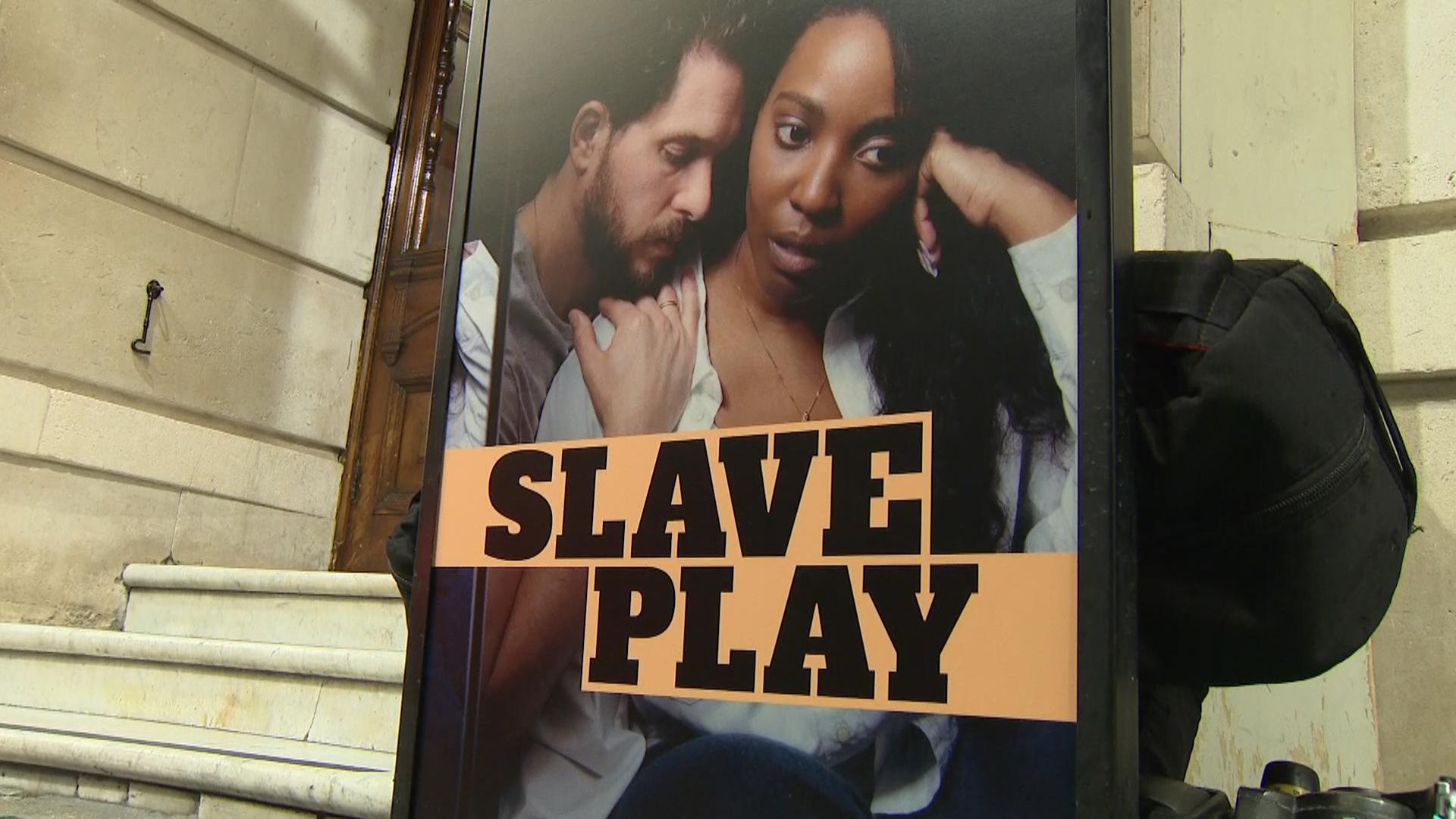Rihanna, sex toys and role play – Slave Play has it all but it’s the show’s “black out” nights, which invite a black-only audience, that are getting more attention than the play’s themes of race, sexuality and identity.
Black out nights were conceived in 2019 by Slave Play’s writer Jeremy O Harris. The official website describes the nights as being for “an all-black-identifying audience” that’s “free from the white gaze”.
When they were announced, there was outcry from parts of the mainstream press and on social media, with Rishi Sunak even weighing in.
“Restricting audiences on the basis of race would be wrong and divisive,” Britain’s former prime minister said via a government spokesperson.
But on the theatre booking site, it’s clear that anyone can buy a black out night ticket, and organisers state that no one will be turned away. Despite this, the nights have been labelled “racist against white people” by some on social media.
The show’s creator Jeremy O Harris wasn’t available to speak with Sky News.
It’s not the first time Harris has brought his black out concept to the UK. In 2022 his play Daddy: A Melodrama held black out nights too.
Supermodel Bella Hadid’s Adidas campaign pulled after being called ‘sick’
June Squibb: The 94-year-old actress lands first leading role – and why she won’t succumb to stereotypes
Hello Kitty not a cat, creators reveal
Writing about Daddy at the time, theatre critic Djiza Benson said the nights draw attention to the issue of black participation in theatre but that it also “smacks of segregation”.
“I worry about anything that separates audiences along the lines of race. Because I don’t think it reflects the true nature of our society – or I don’t think it reflects what we should be aspiring to within our society where all people feel included and welcome in all kinds of spaces,” she told Sky News after Slave Play’s Black black out night in London.
“At the same time, I do think black out audiences make a point,” she added.
In a 2022 Arts Council England (ACE) report they found that in theatres ACE funded, 93% of audience members are white, despite the fact almost 20% of the population in England and Wales is not white.
Read more from Sky News:
Who will pay for the worst IT outage the world has seen?
Rare video of uncontacted tribe shows members emerging from Amazon
Is Joe Biden going to jump – or are the Democrats preparing to push him?
For Jendella Benson, the nights are not exclusionary and simply reflect how different spaces try to be inclusive.
“We already have theatre showings that cater towards people on the autism spectrum, deaf people, people with other accessibility needs. And even in cinemas, we have specific showings for, say, parents with young children,” the author and head of editorial at black women’s organisation Black Ballad said.
“It’s just about giving more people an opportunity to experience [theatre], in settings that cater towards them. It’s not about stopping anyone else from seeing it,” she added.
Sky News spoke to punters, both black and white, who attended the July black out night.
“We’ve got 15 students with us, I don’t think it feels exclusionary at all,” said Holli Farr. “If anything, it’s important for people like us to be in an environment like this so that we can go and feed that back directly into the students that we teach.”
“It’s good to have that space. That’s not racism, I don’t think so,” said Sheila Poku-Dabanka.
“There are white people here tonight, which we didn’t have anything to say about,” said Cameron Bernard Jones. “There was no problem.”
And Syrai-Elise Harewood-Williams said it is about levelling the playing field.
“I don’t want white people to feel excluded, please don’t,” she said. “It’s not an exclusion thing, it’s just we don’t get the same opportunities as you do.”
Keep up with all the latest news from the UK and around the world by following Sky News
Be the first to get Breaking News
Install the Sky News app for free
In the US, Slave Play was a smash hit – becoming the most Tony-nominated show of all time. But here in the UK it seems the controversy around black out nights is perhaps getting more stage time than the play itself and its themes.






















